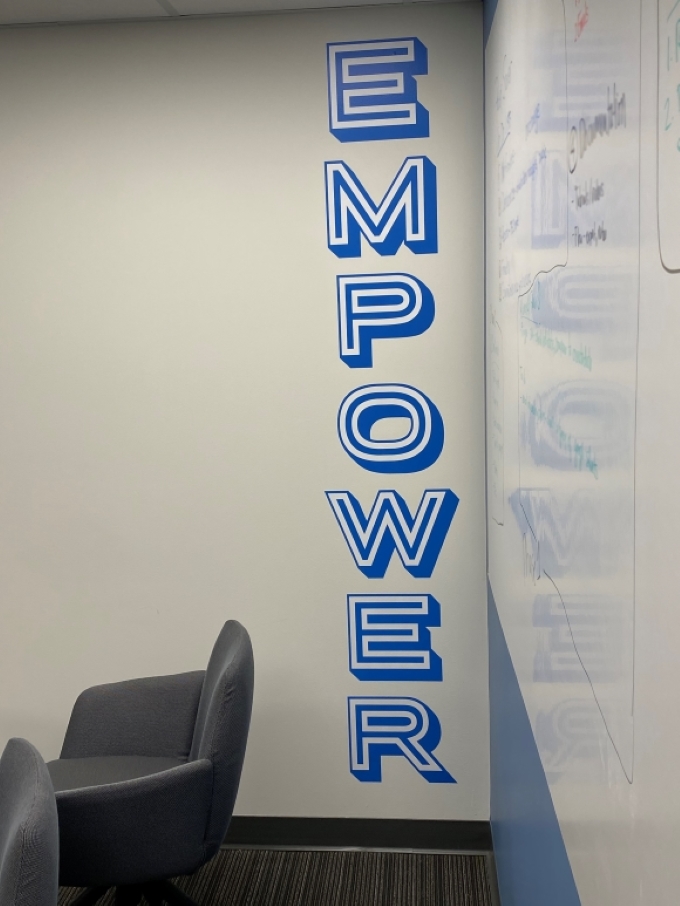Crafting a Mission Statement for Your Business: A Step-by-Step Guide

Introduction
You've probably heard of mission statements, but you may not know exactly what they are or how to write one. A mission statement is a short, clear statement that describes the purpose of your business. It can help guide you and your business through tough times and give you confidence about its future.
Craft a mission statement that reflects your company's purpose.
A mission statement is a short, clear statement that defines the purpose of your business. It's also a useful tool for communicating your company's values to employees and other stakeholders.
A well-crafted mission statement should reflect what makes you unique, so it can be used as a guide for making decisions about how to grow and evolve. The result will be an identity for your brand that resonates with customers--and helps you attract new ones!
Consider your vision, values, and culture as you write your mission statement.
Your mission statement is a key part of your business plan, but it's not the only piece. You'll also need to consider your vision, values, and culture as you write the mission statement.
A vision statement is a short, clear description of what you see your business becoming in the future--what kind of company do you want to be? A good example would be: "We are committed to providing our customers with high-quality products at competitive prices."
Your values are the principles that guide your business decisions and actions; they should reflect who you are as an organization. For example: "At XYZ Company we value honesty above all else." This helps keep everyone focused on what matters most when making decisions or taking action (in this case honesty). It also helps ensure consistency between employees since everyone knows what is expected from them based on their understanding of these values (e.g., honesty).
Make sure that your mission statement is written with universal appeal.
MISSION STATEMENTS SHOULD BE:
Universal. A mission statement should be written with universal appeal and apply to all employees, not just one person or group of people. Avoid jargon or acronyms, use simple language and positive words, and make sure everyone has a chance to agree with the statement. For example, a statement like "The purpose of our company is to provide excellent service" is more likely to resonate with an entire workforce than "Our goal is for me (the owner) to make money."
Specific. A good mission statement will tell you what your company does without being vague or ambiguous about it; this helps set clear expectations for everyone involved in the business so they can better understand their roles within the company structure as well as their contribution toward reaching its goals--and ultimately helps increase productivity!
Talk about your company's goals in the future.
If you're looking for the perfect place to talk about your company's goals in the future, this is it. You might have a long-term plan or a short-term growth plan. Whatever your goal is for your business, share it here!
This section should be all about how you want your business to grow and change over time. This is also where you can mention any changes or updates that will take place within the next few years (or months).
Review it often and revise it as needed.
You may have heard that a mission statement should be short and sweet, but in reality, it's more like a long and satisfying meal--it should be something that you can come back to again and again throughout your business life.
Review it often: Your mission statement should be something that you review regularly as part of your day-to-day operations. It will help guide decisions about what is important for the long term versus what's only important right now.
Revise as needed: If something has changed in the world around us or within our own company (or both), then we need to adjust our mission statement accordingly so that it remains relevant over time. For example, if one of my customers were bought out by another company that started selling competing products at lower prices than mine (lowering demand for my product), I'd want my team members to think about ways we could adjust pricing without losing money on each sale so we don't go out of business!
A carefully crafted mission statement can help guide you and your business through hard times and make you feel more confident about the direction of your business.
A carefully crafted mission statement can help guide you and your business through hard times and make you feel more confident about the direction of your business.
A mission statement helps you stay focused, make important decisions, stay motivated, get through hard times, and feel more confident about the direction of your business.
Write down what you'd like your business to accomplish from the beginning until the end of its lifespan.
Once you've identified your goals and values, it's time to write them down. It's important to note that this is not a mission statement yet--it's just an outline of what you want your business to accomplish from the beginning until the end of its lifespan.
Write down what you want your business to accomplish (i.e., "provide quality products" or "create jobs").
 Write down what kind of person or personality will be behind those accomplishments (i.e., "an entrepreneur who cares about his community").
Think about how people will perceive this person/company/brand after seeing their work in action for themselves over time (i.e., "a generous man who gives back through his company").
You can create a mission statement that works for your business, even though it can be difficult to define.
As you craft your mission statement, it's important to keep in mind that a good one is specific and concise. If your mission statement is too broad or vague, it will be difficult for employees and customers alike to understand what exactly the company does and how they can benefit from working with you.
A great example of this is H&R Block's "We help Americans prepare taxes so they can get back on track with their lives," which we talked about earlier in this guide. This sentence contains no quantifiable goals--it doesn't tell us how many people want help filing their taxes or how much money those people make each year--but instead focuses on vague concepts like "getting back on track" (which could mean anything) or "preparing taxes" (which doesn't specify whether H&R Block does its tax preparation work).
Write down what kind of person or personality will be behind those accomplishments (i.e., "an entrepreneur who cares about his community").
Think about how people will perceive this person/company/brand after seeing their work in action for themselves over time (i.e., "a generous man who gives back through his company").
You can create a mission statement that works for your business, even though it can be difficult to define.
As you craft your mission statement, it's important to keep in mind that a good one is specific and concise. If your mission statement is too broad or vague, it will be difficult for employees and customers alike to understand what exactly the company does and how they can benefit from working with you.
A great example of this is H&R Block's "We help Americans prepare taxes so they can get back on track with their lives," which we talked about earlier in this guide. This sentence contains no quantifiable goals--it doesn't tell us how many people want help filing their taxes or how much money those people make each year--but instead focuses on vague concepts like "getting back on track" (which could mean anything) or "preparing taxes" (which doesn't specify whether H&R Block does its tax preparation work). Conclusion
If you're looking for a way to get started with your mission statement, we hope that this article has given you some helpful tips and inspiration. Remember that it's okay if it doesn't come out perfect on the first try we think it's better if it doesn't! The most important thing is that you keep working at it until every word feels right. Once that happens, there will be no doubt in anyone's mind about what kind of business they're dealing with when they hear about your company from one person or another."
If you like what you read and would like more information on how to bring your Mission Statement to life on your walls, please call us.
Conclusion
If you're looking for a way to get started with your mission statement, we hope that this article has given you some helpful tips and inspiration. Remember that it's okay if it doesn't come out perfect on the first try we think it's better if it doesn't! The most important thing is that you keep working at it until every word feels right. Once that happens, there will be no doubt in anyone's mind about what kind of business they're dealing with when they hear about your company from one person or another."
If you like what you read and would like more information on how to bring your Mission Statement to life on your walls, please call us.
 Write down what kind of person or personality will be behind those accomplishments (i.e., "an entrepreneur who cares about his community").
Think about how people will perceive this person/company/brand after seeing their work in action for themselves over time (i.e., "a generous man who gives back through his company").
You can create a mission statement that works for your business, even though it can be difficult to define.
As you craft your mission statement, it's important to keep in mind that a good one is specific and concise. If your mission statement is too broad or vague, it will be difficult for employees and customers alike to understand what exactly the company does and how they can benefit from working with you.
A great example of this is H&R Block's "We help Americans prepare taxes so they can get back on track with their lives," which we talked about earlier in this guide. This sentence contains no quantifiable goals--it doesn't tell us how many people want help filing their taxes or how much money those people make each year--but instead focuses on vague concepts like "getting back on track" (which could mean anything) or "preparing taxes" (which doesn't specify whether H&R Block does its tax preparation work).
Write down what kind of person or personality will be behind those accomplishments (i.e., "an entrepreneur who cares about his community").
Think about how people will perceive this person/company/brand after seeing their work in action for themselves over time (i.e., "a generous man who gives back through his company").
You can create a mission statement that works for your business, even though it can be difficult to define.
As you craft your mission statement, it's important to keep in mind that a good one is specific and concise. If your mission statement is too broad or vague, it will be difficult for employees and customers alike to understand what exactly the company does and how they can benefit from working with you.
A great example of this is H&R Block's "We help Americans prepare taxes so they can get back on track with their lives," which we talked about earlier in this guide. This sentence contains no quantifiable goals--it doesn't tell us how many people want help filing their taxes or how much money those people make each year--but instead focuses on vague concepts like "getting back on track" (which could mean anything) or "preparing taxes" (which doesn't specify whether H&R Block does its tax preparation work). Conclusion
If you're looking for a way to get started with your mission statement, we hope that this article has given you some helpful tips and inspiration. Remember that it's okay if it doesn't come out perfect on the first try we think it's better if it doesn't! The most important thing is that you keep working at it until every word feels right. Once that happens, there will be no doubt in anyone's mind about what kind of business they're dealing with when they hear about your company from one person or another."
If you like what you read and would like more information on how to bring your Mission Statement to life on your walls, please call us.
Conclusion
If you're looking for a way to get started with your mission statement, we hope that this article has given you some helpful tips and inspiration. Remember that it's okay if it doesn't come out perfect on the first try we think it's better if it doesn't! The most important thing is that you keep working at it until every word feels right. Once that happens, there will be no doubt in anyone's mind about what kind of business they're dealing with when they hear about your company from one person or another."
If you like what you read and would like more information on how to bring your Mission Statement to life on your walls, please call us.
March 28, 2023
|
View: 741
|
Categories: News
| Tags: news, Schools, Motivation, Bed & Breakfast Inns, Branding, Hospital, inspiration, Business Decor, wall decals quotes, designer quotes
|
By: Wall Words Mgmt. Team












